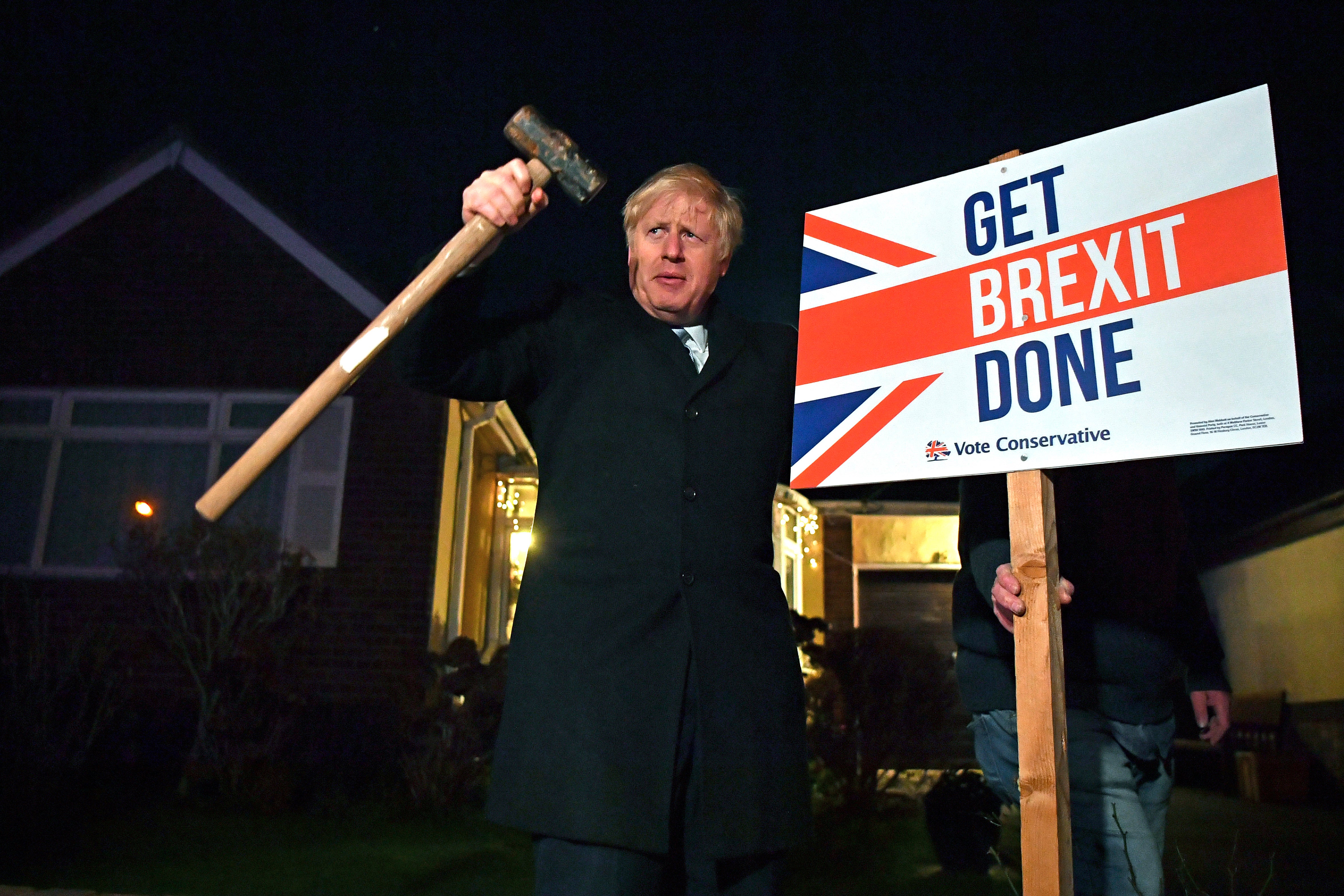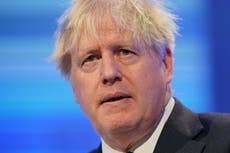Hancock says government was more concerned with counting bodybags than stopping Covid spread
Covid planning approach was ‘completely wrong’, says former health secretary – as he offers ‘heartfelt’ apology to families
Your support helps us to tell the story
From reproductive rights to climate change to Big Tech, The Independent is on the ground when the story is developing. Whether it's investigating the financials of Elon Musk's pro-Trump PAC or producing our latest documentary, 'The A Word', which shines a light on the American women fighting for reproductive rights, we know how important it is to parse out the facts from the messaging.
At such a critical moment in US history, we need reporters on the ground. Your donation allows us to keep sending journalists to speak to both sides of the story.
The Independent is trusted by Americans across the entire political spectrum. And unlike many other quality news outlets, we choose not to lock Americans out of our reporting and analysis with paywalls. We believe quality journalism should be available to everyone, paid for by those who can afford it.
Your support makes all the difference.Matt Hancock has admitted that the UK was not properly prepared for the Covid pandemic – claiming officials were more concerned with counting bodybags than preventing the spread of the virus.
Speaking at the Covid inquiry on Tuesday, the former health secretary described the failure to plan as an “absolute tragedy” and repeatedly insisted that the government’s approach had been “completely wrong”.
He conceded that pre-pandemic plans to protect care homes had been “terrible”, saying the care sector was in “nowhere near good enough shape” when Covid struck.
Mr Hancock also revealed that the UK came “within hours” of running out of vital medicines for intensive care units at the height of the pandemic – but said that the planning that had been undertaken in preparation for a no-deal Brexit meant hospitals were able to cope.
It came as Mr Hancock:
- Attacked planning that revolved around finding “enough bodybags” and “burying the dead”
- Admitted he had not attended any National Security Committee meetings on emergency planning
- Said he “wasn’t enthusiastic” about no-deal Brexit robbing resources from health planning
- Turned to victims’ families in the gallery to tell them he was “profoundly sorry”
- Was heckled as he left the inquiry, with the bereaved shouting “Killer” and “How many have died?”
Mr Hancock apologised directly to the families of Covid victims, dramatically turning to address the bereaved in the public seating area. “I’m profoundly sorry for each death,” he told them. “I understand why, for some, it will be hard to take that apology from me – I understand that. I get it. But it is honest and heartfelt.”
Lorelei King, 69, showed Mr Hancock a poster featuring a picture of her husband, Vincent Marzello, who died in a care home in March 2020 at the age of 72, alongside the former health secretary. “You shook my husband’s hand for your photo op,” the poster was captioned.
At the end of the hearing, Mr Hancock approached the public gallery to attempt to apologise in person – but one woman later said she had turned her back on him. Amanda Herring Murrell, who lose her brother Mark to Covid in March 2020, told Sky News: “I wasn’t having any of it.”
The senior Tory began the hearing by strongly condemning the underlying “doctrine” of the government, which he said was that it “would not be possible to stop a pandemic”, as he revealed that planning had revolved around finding “enough bodybags” and “burying the dead”.

Mr Hancock said a “huge error in the doctrine” in place before Covid arrived in early 2020 meant that not enough resources were available for testing and contact-tracing to prevent the spread of a virus.
“The attitude, the doctrine, of the UK was to plan for the consequences of a disaster – can we buy enough bodybags, where are we going to bury the dead. And that was completely wrong,” he said.
“Large-scale testing did not exist, and large-scale contact-tracing did not exist, because it was assumed that as soon as there was community transmission it wouldn’t be possible to stop the spread, and therefore what’s the point in contact-tracing. That was completely wrong,” he told the inquiry.
In written evidence, Mr Hancock told the inquiry that he was advised when he came into the role of health secretary in July 2018 that the UK was “a world leader” in pandemic preparedness.
He told the inquiry on Tuesday that the advice was based on a very positive assessment of the UK’s readiness by the World Health Organisation. “When you’re assured by the leading global authority that the UK is the best prepared in the world, that is quite a significant reassurance”, said Mr Hancock. “That turned out to be wrong.”
Challenged on why he did not enforce changes at the Department of Health and Social Care, Mr Hancock pointed the finger at civil servants, telling the inquiry’s lawyer: “There was no recommendation to resolve those problems.”
Mr Hancock admitted that he had not attended any meetings of a subcommittee of the National Security Council that was responsible for pandemic planning. Mr Hancock also revealed that the government’s influenza pandemic strategy was not updated after 2011.
On the period between his arrival in July 2018 and the onset of the Covid pandemic in early 2020, he added: “In hindsight wish I’d spent that short period of time ... changing that entire attitude about how we respond to a pandemic.”

The former health secretary said he was told by officials that the UK had significant plans in place for the supply of personal protective equipment. “The problem was, it was extremely hard to get it out fast enough when the crisis hit,” he said.
On testing, he said: “We developed a test in the first few days after the genetic code of Covid-19 was published. The problem was, there was no plan in place to scale testing that ... we could execute.”
Mr Hancock also said he had “pushed hard” on the lack of UK vaccine manufacturing before Covid hit. “I thought in a pandemic scenario ... it would be hard to get hold of vaccine doses if they were physically manufactured overseas, no matter what our contracts said,” he told the inquiry.
Mr Hancock won’t be grilled on his handling of the Covid crisis, or his claims to have thrown a “protective ring” around care homes, until the autumn. But he did face questions on the care sector on Tuesday. Asked if planning for care homes was well prepared, Mr Hancock said: “No, it was terrible,” adding that the sector was in “nowhere near good enough shape”.
Pointing the finger at local authorities, Mr Hancock said only two councils had their own plans to deal with the impact of a pandemic. He said that ahead of the pandemic, even basic data was lacking – “for instance, how many care homes are operating right now in the UK – that was a fact that we did not know at that time, and I’m glad to say now there’s far better data”.
The former health secretary also admitted he had signed off on resources being reallocated away from his department to support emergency planning for Boris Johnson’s threatened “hard” exit from the EU in 2019.

Mr Hancock said: “I wasn’t enthusiastic about it, but I signed it off, and the reason that I signed off the overall reshaping of the department is because we [had] a very real and material threat, should a disorganised Brexit happen, that we needed to be prepared for.”
But Mr Hancock said Britain had come “within hours” of running out of medicines required by intensive care units during the pandemic – and added that planning for a no-deal Brexit had helped to prevent the worst-case scenario. He said it “became extremely useful in saving lives during the pandemic”.
Mr Hancock said the whole world had failed to see that lockdowns would be necessary. “It is the single most important thing we can learn [from] as a country,” he added.
Asked if he agreed that planning for the pandemic was “lions led by structural donkeys”, the ex-minister said: “That’s absolutely right, and that was a problem across the Western world.”
When the inquiry’s lawyer put it to Mr Hancock that there had been a “complete systemic failure” in the UK, he replied: “I couldn’t agree more, and it’s an absolute tragedy.”
Mr Hancock was heckled as he left the inquiry, with people shouting “Killer” and “How many have died?”
Members of the campaign group Covid-19 Bereaved Families for Justice told the BBC that they found it ironic that police officers were on hand to protect Mr Hancock “when he didn’t protect our loved ones”.







Join our commenting forum
Join thought-provoking conversations, follow other Independent readers and see their replies
Comments